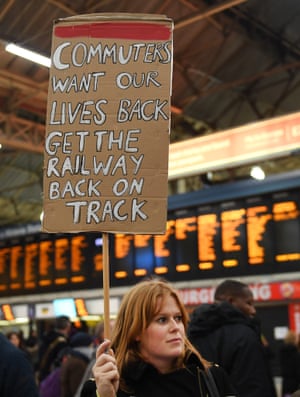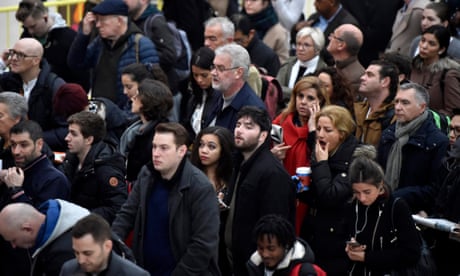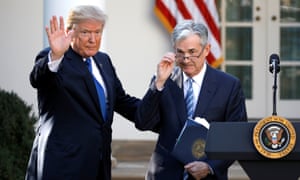'People will forgive you for being wrong, but they will never forgive you for being right - especially if events prove you right while proving them wrong.' Thomas Sowell
Search This Blog
Friday 2 August 2024
Friday 15 July 2022
Monday 25 January 2021
Why you should ditch ‘follow your passion’ careers advice
Emma Jacobs in The FT
“Work is supposed to bring us fulfilment, pleasure, meaning, even joy,” writes Sarah Jaffe in her book, Work Won’t Love You Back. “The admonishment of a thousand inspirational social media posts to ‘do what you love and you’ll never work a day in your life’ has become folk wisdom,” she continues.
Such platitudes suggest an essential truth “stretching back to our caveperson ancestors”. But these fallacies create “stress, anxiety and loneliness”. In short, the “labour of love . . . is a con”. This is the starting point of Ms Jaffe’s book, which goes on to show how the myth permeates diverse jobs and sectors.
---
---
The book serves as a timely reminder of the importance of re-evaluating that relationship. “The global pandemic made the brutality of the workplace more visible,” the author tells me over the phone from Brooklyn, New York. Ms Jaffe, who is a freelance journalist specialising in work, points out that the past year of job losses, anxiety about redundancy, and excessive workloads has demonstrated to workers the truth: their job does not love them.
Work is under scrutiny. The economic fallout of the pandemic has made a great many people desperate for paid work, disillusioned with their jobs or burnt out — and sometimes all three. It has illuminated the stark differences between those who can work from the safety of their homes and those who cannot, including shop workers, carers and medical professionals, who have to put themselves in potentially hazardous situations, often for meagre pay. The idea of self-sacrifice, and that you should put your clients, your patients or your students before yourself, Ms Jaffe says, “gets laid on very thick [with] teachers or nurses”.
Yet there are those in another category — artists and precarious academics — for whom work has always been deemed intrinsically rewarding and a form of self-expression. They are said to be lucky to have such jobs, because plenty of others are clamouring to take their place. Even here, the pandemic has changed perceptions. Social restrictions have curbed some of the aspects of white-collar work that made it rewarding, such as travel and meeting interesting people, that perhaps masked the repetition of daily tasks, the insecurity or poor conditions.
Meanwhile, Ms Jaffe says, a small number of workers, such as those who have been furloughed on full pay, have been given the time to think: what do I do with the time I used to devote to work? “It’s so beaten into us that we have to be productive,” says Ms Jaffe. “I've seen so many memes that are like, ‘if you haven’t written a novel in lockdown, [you’re] doing it wrong’.”
Among the affluent, work used to be something done by others, yet there have long been philosophical debates about whether it could be enjoyable. In the 1800s, Ms Jaffe points out in her book, the British designer and social campaigner William Morris pitched “three hopes” about work: “hope of rest, hope of product, hope of pleasure in the work itself”.
The decline of industrial jobs in the west, and the rise of the service economy, emphasised working for love. Nursing, food service and home healthcare, “draw on skills presumed to come naturally to women; they are seen as extensions of the caring work they are expected to do for their families”, Ms Jaffe writes. Among white-collar workers, the fetishisation of long hours in the late 1980s and 90s was accompanied by an individualistic capitalism. For many industries — notably, media — the idea of work as a form of self-actualisation intensified as security decreased.
Ms Jaffe says that there are overlapping experiences shared by those in the service sector who sit behind desks and those who stand on their feet all day. For example, the notion of the workplace as a family is a refrain in offices but it is most explicit for nannies. In the book, she tells the story of Seally, a nanny in New York who decided to live with her employers between Mondays and Fridays when the pandemic struck — leaving her own kids at home.
Seally told Ms Jaffe that she was worried about her own kids, whether they were doing their schoolwork properly: “At least I call and say, ‘Make sure you do your work’.” But she appreciates the importance of her job. “I love my work,” she said, “because my work is the silk thread that holds society together, making all other work possible”. The pandemic has reinforced the idea that the home is also a workplace and the author wants professionals who hire domestic workers and nannies to understand that and compensate accordingly for the critical role they play in facilitating their ability to do their jobs.
Perhaps the posterchild of insecure white-collar workers are interns, who have traditionally been unpaid. (In the UK, interns are eligible for pay if they are classed as a worker.) Too often, the book argues, interns have been given meaningless work with the prospect of a contract dangled in front of them, to no avail. Working conditions can also be poor — although few are as horrifying as the North Carolina zoo intern Ms Jaffe cites in the book who was killed by an escaped lion, “whose family told reporters she died ‘following her passion’ on her fourth unpaid internship”. The conditions for interns may be set back by the pandemic as so many graduates — and older workers hoping to switch industries — fight for jobs.
Ms Jaffe steers clear of advice. This is not a book that will guide readers on finding a job worthy of their devotion, though she knows that some glib tips would boost sales. “You’re told that you should love your job. Then if you don’t love your job, there’s something wrong with you,” she says. “[The problem] won’t be solved by quitting and finding a job you like better, or a different career, or deciding to just take a job that you don’t like.”
What she hopes is that people who have a nagging sense that their “job kind of sucks, they don't love it” will realise they are not alone. But they can do something about it, for instance joining a union or pushing for fewer hours. This needs to be supported by “a societal reckoning with jobs”. Do people need, for example, 24-hour access to McDonald’s and supermarkets, she asks?
Ms Jaffe wants people to imagine a society which is not organised “emotionally and temporally” around work. As she writes in the book: “What I believe, and want you to believe, too, is that love is too big and beautiful and grand and messy and human a thing to be wasted on a temporary fact of life like work.”
Thursday 12 September 2019
Central banks were always political – so their ‘independence’ doesn’t mean much
Independent central banks were once all the rage. Taking decisions over interest rates and handing them to technocrats was seen as a sensible way of preventing politicians from trying to buy votes with cheap money. They couldn’t be trusted to keep inflation under control, but central banks could.
And when the global economy came crashing down in the autumn of 2008, it was central banks that prevented another Great Depression. Interest rates were slashed and the electronic money taps were turned on with quantitative easing (QE). That, at least, is the way central banks tell the story.
An alternative narrative goes like this. Collectively, central banks failed to stop the biggest asset-price bubble in history from developing during the early 2000s. Instead of taking action to prevent a ruinous buildup of debt, they congratulated themselves on keeping inflation low.
Even when the storm broke, some institutions – most notably the European Central Bank (ECB) – were slow to act. And while the monetary stimulus provided by record-low interest rates and QE did arrest the slide into depression, the recovery was slow and patchy. The price of houses and shares soared, but wages flatlined.
A decade on from the 2008 crash, another financial crisis is brewing. The US central bank – the Federal Reserve – is coming under huge pressure from Donald Trump to cut interest rates and restart QE. The poor state of the German economy and the threat of deflation means that on Thursday the ECB will cut the already negative interest rate for bank deposits and announce the resumption of its QE programme.
But central banks are almost out of ammo. If cutting interest rates to zero or just above was insufficient to bring about the sort of sustained recovery seen after previous recessions, then it is not obvious why a couple of quarter-point cuts will make much difference now. Likewise, expecting a bit more QE to do anything other than give a fillip to shares on Wall Street and the City is the triumph of hope over experience.
There were alternatives to the response to the 2008 crisis. Governments could have changed the mix, placing more emphasis on fiscal measures – tax cuts and spending increases – than on monetary stimulus, and then seeking to make the two arms of policy work together. They could have taken advantage of low interest rates to borrow more for the public spending programmes that would have created jobs and demand in their economies. Finance ministries could have ensured that QE contributed to the long-term good of the economy – the environment, for example – if they had issued bonds and instructed central banks to buy them.
This sort of approach does, though, involve breaking one of the big taboos of the modern age: the belief that monetary and fiscal policy should be kept separate and that central banks should be allowed to operate free from political interference.
The consensus blossomed during the good times of the late 1990s and early 2000s, and survived the financial crisis of 2008 . But challenges from both the left and right, especially in the US, suggest that it won’t survive the next one. Trump says the Fed has damaged the economy by pushing up interest rates too quickly. Bernie Sanders says the US central bank has been captured by Wall Street. Both arguments are correct. It is a good thing that central bank independence is finally coming under scrutiny.
For a start, it has become clear that the notion of depoliticised central bankers is a myth. When he was governor of the Bank of England, Mervyn King lectured the government about the need for austerity while jealously guarding the right to set interest rates free from any political interference. Likewise, rarely does Mario Draghi, the outgoing president of the ECB, hold a press conference without urging eurozone countries to reduce budget deficits and embrace structural reform.
Central bankers have views and – perhaps unsurprisingly – they tend to be quite conservative ones. As the US economist Thomas Palley notes in a recent paper, central bank independence is a product of the neoliberal Chicago school of economics and aims to advance neoliberal interests. More specifically, workers like high employment because in those circumstances it is easier to bid up pay. Employers prefer higher unemployment because it keeps wages down and profits up. Central banks side with capital over labour because they accept the neoliberal idea that there is a point – the natural rate of unemployment – beyond which stimulating the economy merely leads to higher inflation. They are, Palley says, institutions “favoured by capital to guard against the danger that a democracy may choose economic policies capital dislikes”.
Until now, monetary policy has been deemed too important to be left to politicians. When the next crisis arrives it will become too political an issue to be left to unelected technocrats. If that crisis is to be tackled effectively, the age of independent central banks will have to come to an end.
Tuesday 24 October 2017
How do Non Disclosure Agreements Work?
Many of the women who have spoken about sexual harassment by Harvey Weinstein, the Hollywood film producer, signed non-disclosure agreements. Such agreements have been criticised for being a tool used by the wealthy and powerful to silence victims.
Wednesday 14 June 2017
23 Signs You're about to be Fired
Getting fired can be a real shock to the system.
But there are usually signs that your termination is pending. You've just got to know where to look.
Maybe your boss is out to get you. Maybe you've been embroiled in some recent controversy at work. Or maybe your organization is undergoing a massive transition or merger.
Either way, it helps to be prepared.
Lynn Taylor, a national workplace expert and the author of "Tame Your Terrible Office Tyrant: How to Manage Childish Boss Behavior and Thrive in Your Job," tells Business Insider that the savviest professionals always keep an eye out for the classic signs that their job is in danger. This way, if and when they notice red flags popping up, they can attempt to turn the tides before it's too late.
Here are 23 signs you may be getting the boot:
You receive a bad performance review (or two, or three)
A negative evaluation is not always synonymous with being fired, but, in conjunction with other bad feedback, it can mean trouble, says Taylor. "Your employer needs to create a paper trail, so along with warnings, your employer will use a performance review to document the problem areas."
More than one poor performance review in a row is an especially bad sign, adds Michael Kerr, an international business speaker and author of "The Humor Advantage."
"Depending on how bad your first performance review was, you may be given a chance to make corrections and improve, but a series of critical performance reviews could be a major sign that your job is in jeopardy," Kerr tells Business Insider.
If it's because of a lack of experience or lack of training in a certain area, then there's always a chance to fix it. But critical phrases to be mindful of during performance reviews include, "You're not a good fit for our culture," "You're not a team player," "Your personality or style doesn't seem to mesh with the team," or "You have a major attitude problem."
"If you hear any of these types of criticisms then it's time to break out your résumé, since it's often assumed that attitudinal issues are deeply engrained and unfixable," he says.

You're left out of the loop
If it's suddenly hard to access important data that would help you perform well in your job, or you're not invited to important meetings or included on key emails, a pink slip may be coming your way, says Taylor.
"There could be other reasons for this happening, but certainly one may be that your leadership has lost the trust or confidence in your abilities, making you vulnerable when and if layoffs happen," Kerr says.
Your job has become mission impossible
"When you first assumed the role, you had your marching orders and could accomplish them. Now it seems that you're tasked with projects akin to climbing Mount Everest blindfolded," says Taylor.
"You're being set up to fail," Kerr explains. "Sometimes this is due to lousy leadership, but occasionally it can be because a company wants to get rid of you, but they need solid evidence to do so, and setting you up for disaster is one way of getting the 'proof' you longer belong there."
Your boss has 'warned' you (more than once)
Formal warnings are never a good thing. "You may have received a verbal warning, a written warning, and maybe even a second written warning," says Taylor. If you have, know that more bad news may be coming your way.
Your relationship with your boss has deteriorated
You used to be friends (or friendly, at least) -- but now there's tension whenever you're in the same room. "Once your relationship has deteriorated to the point of being toxic, then how your boss treats you -- from ignoring you to publicly berating you -- can be obvious signs that your job might be in peril," says Kerr.

You're asked to provide detailed reports about time or expenses
"Increased scrutiny is a phenomenon that is rarely initiated by the accounting department," Robert Dilenschneider, author of "50 Plus!: Critical Career Decisions for the Rest of Your Life," tells Business Insider. "The boss believes that you have wasted time or inflated expenses. Even if you are 100% innocent, it doesn't matter. Find out if you are the only person being scrutinized."
Fewer projects are coming your way
Here's a bad sign: You suddenly have a lot of time on your hands because not a lot of work is being assigned to you. "As you try to secure normal work, it seems it's hard to get cooperation from your boss and other managers," Taylor says. "They're suddenly making your work life difficult."
Teamwork isn't your strong suit
It's important to fit into the company's culture. That means taking one for the team sometimes, as HR consultant Laurie Ruettimann tells Reader's Digest: "If we ask you to travel for your job or attend a conference, it's not really a question. Say no, and it can be career-ending."
You've lost resources
When you lose staff, budgets, and access to certain outside services and/or office space -- or any number of tools that would enhance your performance -- it could be because your employer is trying to push you out.
Your boss is on your case all the time
Are you constantly being asked for progress reports? Do you find that your boss constantly monitors your work?
If so, you may want to start looking for a new job, says Dilenschneider.
You're being micromanaged or ignored
It seems that you're working in extremes. Either your boss is watching your every step, or they're nowhere to be found. "Either way, it makes for a highly uncomfortable environment," Taylor explains. "If they're watching over you, you feel a lack of trust. If they're ignoring you, then you are in a seemingly endless state of inertia on your project status."

Do you feel less important? Have your subordinates been transferred to other managers? Have projects been reassigned to your colleagues? If so, you could be getting the boot sometime soon.
Your perks start to evaporate
"Your colleagues are all sent to a conference in Marrakesh, but you aren't invited. You are told to fly coach after years of flying business class. Suddenly, you lose your corner office and are relocated to the bullpen," says Dilenschneider. "Perks are an important part of the job, and if you sense yours are being eroded, you have every right to worry."
You're no longer praised for your work
Even if you performed a miracle never before witnessed by a mortal being, it seems your boss wouldn't acknowledge it now. "To do so would run contrary to the campaign underway to remove you from the company," explains Taylor.
You've received a pay cut or been asked to take time off
If you've been asked to take a leave of absence, you probably have something to worry about. "This is a major sign that things aren't well, even if it's under the guise of being what's 'best for you,'" says Kerr. "It's the equivalent of a dating couple 'taking a break for a while' -- and we all know how that usually ends."
You notice more gossip and strange behavior from your coworkers
When people seem to shy away from you, and you notice it most from people with whom you shared a friendship, it probably means something's up. "Oftentimes when coworkers hear rumors about someone being fired or even reprimanded, they stay away to avoid 'guilt by association,'" Taylor says.

You report to new or more people
Suddenly you're reporting to more junior people or more managers in a matrix environment. "There's more red tape and bureaucracy whereas before you could get your work done in a streamlined way," Taylor says. This isn't a great sign.
You've made a major mistake that causes your company external embarrassment or a lot of money
"Depending on the context and how your leadership team treats failures and setbacks, especially in the realm of experimenting with innovative ideas, then you might be allowed to file a major mistake under the heading 'learning experience,'" Kerr says. "But for some, this will mean an early exit out the door."
Your boss goes directly to your subordinates
This sign is similar to "being left out of the loop" -- but even worse. "Most organizations have a chain of command, and when it is disrupted, it is a clear indication that you are no longer needed," says Dilenschneider.
Your access to certain data is limited
When a company is preparing to let someone go, they sometimes limit or revoke the employee's access to certain accounts a bit prematurely.
Beware if your email password no longer works or you've been locked out of your company's intranet, says Taylor.
You're no longer asked for input on key decisions
Not being asked for input means your boss no longer values or cares about what you have to say, Kerr warns. "Freezing you out of the loop is often the first sign of a slow slide out the door."
There was a recent merger, but little information
After a merger, it's not uncommon for a company to make layoffs -- sometimes even massive layoffs, Kerr says.
"If you're feeling that your job was at risk already, then a merger could put the nail on the proverbial coffin," adds Taylor.
Your instincts are telling you something's wrong
"If you feel you've done everything you can, but still have that 'I might get fired' feeling, you're probably right, and it's likely time to move on," Andy Bailey of business coaching service Petra Coach tells Business Insider. "You may be an 'A' player, but it might have to be somewhere else. Begin seeking out other positions that better reflect your personality and work ethic."
Ketti Salemme of TINYPulse, an employee survey product, also tells Business Insider that it's important not to disregard your own instincts.
"Sometimes the sign can be nothing more than a gut feeling," Salemme says. "Whether it be a shift in the company culture, your job duties, or your relationship with colleagues, this can be indicative enough that you may soon be let go."
Wednesday 5 April 2017
Freedom for whom, at whose expense?
 ‘When thinktanks and the billionaire press call for freedom, they are careful not to specify whose freedoms they mean. Freedom for some, they suggest, means freedom for all.’ Photograph: Dan Kitwood/Getty Images
‘When thinktanks and the billionaire press call for freedom, they are careful not to specify whose freedoms they mean. Freedom for some, they suggest, means freedom for all.’ Photograph: Dan Kitwood/Getty ImagesPropaganda works by sanctifying a single value, such as faith, or patriotism. Anyone who questions it puts themselves outside the circle of respectable opinion. The sacred value is used to obscure the intentions of those who champion it. Today, the value is freedom. Freedom is a word that powerful people use to shut down thought.
When thinktanks and the billionaire press call for freedom, they are careful not to specify whose freedoms they mean. Freedom for some, they suggest, means freedom for all. In certain cases, this is true. You can exercise freedom of thought, for instance, without harming others. In other cases, one person’s freedom is another’s captivity.
When corporations free themselves from trade unions, they curtail the freedoms of their workers. When the very rich free themselves from tax, other people suffer through failing public services. When financiers are free to design exotic financial instruments, the rest of us pay for the crises they cause.
Above all, billionaires and the organisations they run demand freedom from something they call “red tape”. What they mean by red tape is public protection. An article in the Telegraph last week was headlined “Cut the EU red tape choking Britain after Brexit to set the country free from the shackles of Brussels”. Yes, we are choking, but not on red tape. We are choking because the government flouts European rules on air quality. The resulting air pollution frees thousands of souls from their bodies.
To be fair to the Telegraph, which is running a campaign to deregulate the entire economy once Britain has left the EU, it is, unusually, almost explicit about who the beneficiaries are. It explains that “the ultimate goal of this whole process should be to … set the wealth creators free”. (Wealth creators: code for the very rich.) Among the potential prizes it lists are changes to the banana grading system, allowing strongly curved bananas to be categorised as Class 1, a return to incandescent lightbulbs and the freedom to kill great crested newts.
I suspect that the Barclay brothers, the billionaires who own the Telegraph, couldn’t give a monkey’s about bananas. But as their business empire incorporates hotels, shipping, car sales, home shopping and deliveries, they might be intensely interested in the European working time directive and other aspects of employment law, tax directives, environmental impact assessments, the consumer rights directive, maritime safety laws and a host of similar public protections.
If the government agrees to a “bonfire of red tape”, we would win bent bananas and newt-squashing prerogatives. On the other hand, we could lose our rights to fair employment, an enduring living world, clean air, clean water, public safety, consumer protection, functioning public services, and the other distinguishing features of civilisation. Tough choice, isn’t it?
The overriding of the safety mechanism on a ride at Alton Towers led to two young women having their legs amputated
As if to hammer the point home, the Sunday Telegraph interviewed Nick Varney, chief executive of Merlin Entertainments, in an article claiming that the “red tape burden” was too heavy for listed companies. He described some of the public protections that companies have to observe as “bloody baggage”. The article failed to connect these remarks to his company’s own bloody baggage, caused by its unilateral decision to cut red tape. As a result of overriding the safety mechanism on one of its rides at Alton Towers – which was operating, against the guidelines, during high winds – 16 people were injured, including two young women who had their legs amputated. That’s why we need public protections of the kind the Telegraph wants to destroy.
The same ethos, with the same justification, pervades the Trump administration. The new head of the environmental protection agency, Scott Pruitt, is seeking to annul the rules protecting rivers from pollution, workers from exposure to pesticides, and everyone from climate breakdown. It’s not as if the agency was overzealous before: one of the reasons for the mass poisoning in Flint, Michigan, was its catastrophic failure to protect people from the contamination of drinking water by lead: a failure that now afflicts 18 million Americans.

‘The new head of the US environmental protection agency is seeking to annul the rules protecting rivers from pollution, workers from exposure to pesticides and everyone from climate breakdown.’ Photograph: Alamy
On neither side of the Atlantic are these efforts unopposed. Trump’s assault on public protections has already provoked dozens of lawsuits. The European council has told the UK government that if it wants to trade with the EU on favourable terms after Brexit, companies here cannot cut their costs by dumping them on the rest of society.
This drives the leading Brexiters berserk. As a result of the pollution paradox (the dirtiest corporations have to spend the most money on politics, so the political system comes to be owned by them), politicians like Boris Johnson and Michael Gove have an incentive to champion the freedom of irresponsible companies. But it also puts them in a bind. Their primary argument for deregulation is that it makes businesses more competitive. If it means those businesses can’t trade with the EU, the case falls apart.
They will try to light the bonfire anyway, as this is a question of power and culture as well as money. You don’t need to listen for long to the very rich to realise that many see themselves as the “independents” Friedrich Hayek celebrated in The Constitution of Liberty, or as John Galt, who led a millionaires’ strike against the government in Ayn Rand’s novel, Atlas Shrugged. Like Hayek, they regard freedom from democracy as an absolute right, regardless of the costs this may inflict on others, or even themselves.
When we confront a system of propaganda, our first task is to decode it. This begins by interrogating its sacred value. Whenever we hear the word freedom, we should ask ourselves, “Freedom for whom, at whose expense?”
Tuesday 28 March 2017
Access to justice is no longer a worker’s right, but a luxury
Laws that cost too much to enforce are phoney laws. A civil right that people can’t afford to use is no right at all. And a society that turns justice into a luxury good is one no longer ruled by law, but by money and power. This week the highest court in the land will decide whether Britain will become such a society. There are plenty of signs that we have already gone too far.
Listen to the country’s top judge, Lord Thomas of Cwmgiedd, who admits that “our justice system has become unaffordable to most”. Look at our legal-aid system, slashed so heavily by David Cameron and Theresa May that the poor must act as their own trial lawyers, ready to be skittled by barristers in the pay of their moneyed opponents.
The latest case will be heard by seven supreme court judges and will pit the government against the trade union Unison. It will be the climax of a four-year legal battle over one of the most fundamental rights of all: the right of workers to stand up against their bosses.
In 2013, Cameron stripped workers of the right to access the employment tribunal system. Whether a pregnant woman forced out of her job, a Bangladeshi-origin guy battling racism at work, or a young graduate with disabilities getting aggro from a boss, all would now have to pay £1,200 for a chance of redress.
The number of cases taken to tribunal promptly fell off a cliff – down by 70% within a year. Citizens Advice, employment lawyers and academics practically queued up to warn that workers – especially poor workers – were getting priced out of justice. But for Conservative ministers, all was fine. Loyal flacks such as Matthew Hancock (then employment minister) claimed those deterred by the fees were merely “unscrupulous” try-ons, intent on “bullying bosses”. Follow Hancock’s logic, and with all those time-wasters weeded out, you’d expect the number of successful tribunal claims to jump. They’ve actually dropped.
At each hearing of Unison’s case, the judges have wound up asking to see actual people for whom the fees have represented a barrier to justice. One was sure that“if the statistics … were drilled down to some individual cases, situations would be revealed that showed an inability on the part of some people to proceed before an employment tribunal through lack of funds”.
Should the supreme court judges want the same thing, they could meet Liliana Almanza. They’d find her a compelling witness, although she finds it hard to sit down for too long due to three herniated discs in her lower back, which make her feel like she’s lugging around “a lot of heavy weight” and which send pain shooting into her hands, legs, shoulders and neck. She also has sometimes severe depression and anxiety. The physical pain and the mental illness can feed off each other.
Almanza has worked as a cleaner at the University of London since 2011 and never kept her conditions from her employer, an outsourcing company called Cofely. Then came a new supervisor, who Almanza felt had it in for her and who piled on extra work. Almanza was sent to the “punishment floor” – actually three floors, normally handled by two people, but she had to do the work on her own and in little time. The extra workload, especially the pushing about of a hoover and a mop, caused her so much pain that she sometimes felt dizzy. Yet when Almanza complained, she says the supervisor either laughed or told her to sign off sick. Despite being required under law, there was no adjustment for her disabilities.
Almanza, who is Colombian, remembers the supervisor telling her how Latin Americans were a bunch of beggars. Other times, she’d call Almanza a “bitch” and a “whore”.
On the worst days, Almanza would walk over to Euston station and stand at the platform’s very edge. She’d wait for the tube to come. Then “a light would come on” and she’d pull herself back.
Almanza did exactly what ministers would want and submitted a grievance using Cofely’s in-house procedure. It was rejected. She appealed and did not hear anything for months. However desperate her situation, she would never have found the money for a tribunal. Some are exempt from the fees, but Almanza and her husband – both cleaners – apparently earned too much money for her to qualify. Nor does the means-testing account for living costs, even though after renting a single room in a shared ex-council house in London and paying bills they have almost no money each month.
Her union, the tiny Independent Workers of Great Britain (IWGB), pitched in some money to go to tribunal and helped crowdfund the rest. As soon as she did, Almanza remembers that her employer made a number of adjustments and lightened her workload.
I contacted Engie, as Cofely has been rebranded, for its response to Almanza’s charges. Its statement reads in part: “We do not tolerate discrimination in the workplace and all claims … are investigated thoroughly. Following extensive investigation of the allegations brought against Cofely Workplace, all claims were denied and Cofely was formally discharged from the proceedings by the court on 24th May 2016.” The court documents actually show that Cofely was discharged because the contract was taken over by another company, which also reached a settlement with Almanza.
Without charity and the shoestring resources of the IWGB, Almanza wouldn’t have been able to file a claim. If she could testify to the supreme court, what would she say? “I would tell the judges if I hadn’t been able to go to tribunal I don’t think I’d be here today. If I’d continued like that, I wouldn’t have been able to tell this story. Maybe it sounds like an exaggeration, a movie. But it’s one thing to talk about it, another thing to live it.”
Monday 19 December 2016
Don’t complain about the strikers – they’re only doing what we all should in 2017
We seem to love the working class as long as it is a) white and b) passive. The real working class is neither. It is multi-ethnic and, from Southern Rail to British Airways, it is set to strike.
Predictably, the Conservatives are calling for more legal restrictions on strike action. Theresa May accused strikers of “contempt for ordinary people”. And – as always – the neck veins of TV reporters are bulging as they express outrage on behalf of those affected.

Union leader says No 10 demonising working people in strikes row
Yet, try as they might, the politicians and journalists have failed to stir up mob hatred against the strikers, some of whom – such as the Southern Rail drivers and guards – have been taking industrial action for weeks. And the reasons for this are obvious: they are ordinary people.
While the miners and steelworkers of the 1980s worked in relatively insular steel and mining towns, everybody knows a BA cabin steward, a train guard, a baggage handler or a Post Office counter worker. What’s more, because so much of our work has become modular, low-paid and deskilled, many people know, or can guess, exactly what they are going through.
We have near full employment yet near wage stagnation. The strikes taking place over Christmas are happening among workers who have not seen a pay rise for years. BA’s onboard customer service managers, for example, have been stripped of their union negotiation rights and had their pay frozen for six years.
One of the most pitiful things about the political class, and the economists who whisper certainties in their ear, is their distance from the actual experience of work. As trade union rights have become eroded throughout the private sector, and large chunks of the public sector become privatised, a culture of coercion has taken root at work.

A commuter protests in support of Southern Rail staff. at Victoria Station in London. Photograph: Andy Rain/EPA
It does not have to be as bad as the leading fast-food cafe chain where a secret shopper deducts the bonus of an entire shift if one person does not smile. But it is pervasive.
Generally, you are supposed to smile, supposed to exhibit happiness for your seven quid an hour, obey orders without question, to hit meaningless targets or scam them on the instruction of your line manager – and, increasingly, you’re supposed to pretend you are self-employed.
You can spend entire days, if you think about it, being served only by people with no actual employment status: the Uber driver, the hairdresser, the physiotherapist. Even businesses where you’re paying a limited company through your credit card now routinely require their “associates” to be self-empolyed.
The result looks like a fake-tan version of Downtown Abbey with all the same levels of deference but zero paternal responsibility. And deep down, people who work for a living understand the modern “contract” between worker and employer is barely worth the paper it is written on.
That’s why workers with union rights and relative job security use the strike weapon. It’s never pleasant. But every cabin worker at BA and Virgin knows that, without the unions, they would see their pension rights stolen and their conditions eroded to the same levels enjoyed by their counterparts at the budget airlines.
And what’s driving the attacks is always the same familiar, financial pressure. Public services, once privatised, are forced to enter a race to the bottom in terms of pay, conditions and pensions for their workers. Once financial logic overtakes the logic of providing a service as efficiently as possible, you get the stupidities of Southern Rail, which cut its services to passengers in order to provide itself with an achievable target.
Jeremy Corbyn has been condemned for failing to condemn the strikes – and for attending a Christmas party with the Aslef union. If it were up to me, Corbyn would actually throw a Christmas party, not just for the Aslef strikers but for all the workers toiling on basic pay, fictitious contracts and unachievable targets over the festive period.
Those of us in unions – and there are still millions of us – know they make a massive and positive difference. Because workers on London Underground are unionised, there is a guard at my local tube station who refuses to wear any other name badge than one with “Lenin” on it.

No 10 accuses striking workers of 'contempt for ordinary people'
Although I do not recommend this level of resistance for everybody, it is a physical symbol of the fact that unionised workers are people you do not mess around with.
The Southern strikers, the BA crews and the Post Office workers are showing a different side of what it means to express your collective identity at work. So did the junior doctors, whose determined action got them a better deal than their leaders originally thought they could achieve.
Coming on top of the strikes by Deliveroo riders and a union-led court victory for Uber drivers, these are signs that even the heavily casualised workforce of the 21st century will not suffer indignity for ever.
In economics, it has become common to hear that one of the main failings of the current system is wage stagnation; even the Bank of England would like to see more inflation. So don’t complain about the posties, train drivers, cabin crews and baggage handlers – they’re only doing what we all should in 2017.
Ask for a pay rise, defend your pension rights, insist that work conditions are respectful and safe – and demand your employer negotiates with a real trade union and pays the rate for the job.
Wednesday 30 September 2015
How the banks ignored the lessons of the crash
Ask people where they were on 9/11, and most have a memory to share. Ask where they were when Lehman Brothers collapsed, and many will struggle even to remember the correct year. The 158-year-old Wall Street bank filed for bankruptcy on 15 September 2008. As the news broke, insiders experienced an atmosphere of unprecedented panic. One former investment banker recalled: “I thought: so this is what the threat of war must feel like. I remember looking out of the window and seeing the buses drive by. People everywhere going through a normal working day – or so they thought. I realised: they have no idea. I called my father from the office to tell him to transfer all his savings to a safer bank. Going home that day, I was genuinely terrified.”
A veteran at a small credit rating agency who spent his whole career in the City of London told me with genuine emotion: “It was terrifying. Absolutely terrifying. We came so close to a global meltdown.” He had been on holiday in the week Lehman went bust. “I remember opening up the paper every day and going: ‘Oh my God.’ I was on my BlackBerry following events. Confusion, embarrassment, incredulity ... I went through the whole gamut of human emotions. At some point my wife threatened to throw my BlackBerry in the lake if I didn’t stop reading on my phone. I couldn’t stop.”
Other financial workers in the City, who were at their desks after Lehman defaulted, described colleagues sitting frozen before their screens, paralysed – unable to act even when there was easy money to be made. Things were looking so bad, they said, that some got on the phone to their families: “Get as much money from the ATM as you can.” “Rush to the supermarket to hoard food.” “Buy gold.” “Get everything ready to evacuate the kids to the country.” As they recalled those days, there was often a note of shame in their voices, as if they felt humiliated by the memory of their vulnerability. Even some of the most macho traders became visibly uncomfortable. One said to me in a grim voice: “That was scary, mate. I mean, not film scary. Really scary.”
I spent two years, from 2011 to 2013, interviewing about 200 bankers and financial workers as part of an investigation into banking culture in the City of London after the crash. Not everyone I spoke to had been so terrified in the days and weeks after Lehman collapsed. But the ones who had phoned their families in panic explained to me that what they were afraid of was the domino effect. The collapse of a global megabank such as Lehman could cause the financial system to come to a halt, seize up and then implode. Not only would this mean that we could no longer withdraw our money from banks, it would also mean that lines of credit would stop. As the fund manager George Cooper put it in his book The Origin of Financial Crises: “This financial crisis came perilously close to causing a systemic failure of the global financial system. Had this occurred, global trade would have ceased to function within a very short period of time.” Remember that this is the age of just-in-time inventory management, Cooper added – meaning supermarkets have very small stocks. With impeccable understatement, he said: “It is sobering to contemplate the consequences of interrupting food supplies to the world’s major cities for even a few days.”

These were the dominos threatening to fall in 2008. The next tile would be hundreds of millions of people worldwide all learning at the same time that they had lost access to their bank accounts and that supplies to their supermarkets, pharmacies and petrol stations had frozen. The TV images that have come to define this whole episode – defeated-looking Lehman employees carrying boxes of their belongings through Wall Street – have become objects of satire. As if it were only a matter of a few hundred overpaid people losing their jobs: Look at the Masters of the Universe now, brought down to our level!
In reality, those cardboard box-carrying bankers were the beginning of what could very well have been a genuine breakdown of society. Although we did not quite fall off the edge after the crash in the way some bankers were anticipating, the painful effects are still being felt in almost every sector. At this distance, however, seven years on, it’s hard to see what has changed.
A typical education in the west leaves you with more insight into ancient Rome or Egypt than into our financial system – and while there are plenty of books and DVDs for lay people about, say, quantum mechanics, evolution or the human genome, before the crash there was virtually nothing to explain finance to outsiders in accessible language. The City, as John Lanchester put it in his book about the 2008 crash, Whoops!, is still “a far-off country of which we know little”.
As a result, ordinary people trying to form an opinion about finance over the past decades have had very little to go on, and many seem to have latched on to the images provided by films and TV.
The British stereotype of the boring banker began to change in the 80s when finance was deregulated. Following Ronald Reagan’s dictum, “Government is not the solution to the problem, it is the problem”, banks were allowed to unite under one roof activities that regulation had previously required to be divided between separate firms and banks. They were able to grow to sizes many times bigger than a country’s GDP – the assumption being that the market would be self-regulating. The changes also meant that bankers became immensely powerful. Hollywood provided the City with a new hero: the financier Gordon Gekko, from Oliver Stone’s 1987 film Wall Street, who brought us the phrase “Greed is good”. In his portrait of bond traders’ raging ambition, Bonfire of the Vanities, novelist Tom Wolfe coined the term “Masters of the Universe”.
It all seemed innocent entertainment, before 2008: tales about a far-off country where boys behaved badly, scandalously even, but above all, reassuringly far away from the comfort and safety of our own homes, something like watching a Quentin Tarantino film or an episode of The Sopranos. This was the era when a Labour chancellor, Gordon Brown, could give a speech to a gathering of bankers and asset managers and tell them: “The financial services sector in Britain, and the City of London at the centre of it, is a great example of a highly skilled, high value-added, talent-driven industry that shows how we can excel in a world of global competition. Britain needs more of the vigour, ingenuity and aspiration that you already demonstrate that is the hallmark of your success.”
Those words were spoken in 2007, and a year later the world found itself in the middle of the biggest financial panic since the 1930s. In the end, it was only through a combination of pure luck, extremely expensive nationalisations and bailouts, the lowest interest rates in recorded history plus an ongoing experiment in mass money printing, that total meltdown was averted.
The post-Lehman panic was followed by a wave of investigations and reconstructions by journalists, writers and politicians. More than 300 books have been published about the crash in English alone. Every western country held extensive hearings and produced detailed recommendations. Everything you need to know about what is wrong with finance and the banks today is in their reports; the problem is that there is so much more that needs to be explained.
Most areas inside banking had little or nothing to do with the crash, while many players outside banking bore a heavy responsibility, too, including insurers, credit rating agencies, accountancy firms, financial law firms, central banks, regulators and politicians. Investors such as pension funds had been egging the banks on to make more profits by taking more risk. Unless you had a firm understanding of finance, the causes of the crash were very unclear, and this must be part of the reason why the clearest and most urgent lesson of all would get lost or buried: the financial system itself had become dangerously flawed.
After the crash of 2008, ignorance among the general public, reticence among complicit mainstream politicians and a deeply skewed and sensationalist portrayal of finance in the mass media conspired to create the narrative that the crash was caused by greed or by some other character flaw in individual bankers: psychopathy, gambling addiction or cocaine use. (A whole genre of City memoirs sprang up with titles such as Binge Trading: The Real Inside Story of Cash, Cocaine and Corruption in the City. Gordon Gekko returned for a sequel, Wall Street: Money Never Sleeps, and Leonardo di Caprio scored an immense hit playing the title role in The Wolf of Wall Street, about a whoring and cocaine-snorting financial fraudster.)
From there it was a small step to the notion that we can fix finance by getting rid of the “jerks”, as the plain speaking former Barclays CEO Bob Diamond put it. When Diamond was forced to resign in July 2012 over a scandal involving interest rate rigging by his traders, his successor, Antony Jenkins, also promised to focus on changing the culture. And so the same banks that brought us the mess of 2008 eagerly embraced the need for cultural change – which alone should arouse our suspicions. If there is one recurring theme in the many conversations I had with City insiders, it was the need for structural rather than cultural change; not so much different bankers, but a different system.
“Sometimes I feel as if finance has reacted to the crisis the way a motorist might after a near-accident,” said the City veteran at a small credit rating agency whose wife had almost chucked his phone into a lake at the height of the panic. “There is the adrenaline surge directly after the lucky escape, followed by the huge shock when you realise what could have happened. But as the journey continues and the scene recedes in the rear-view mirror, you tell yourself: maybe it wasn’t that bad. The memory of your panic fades, and you even begin to misremember what happened. Was it really that bad?”
He was a soft-spoken man, the sort to send a text message if he is going to be five minutes late to a meeting. But now he was really angry: “If you had told people at the height of the crisis that years later we’d have had no fundamental changes, nobody would have believed you. Such was the panic and fear. But here we are. It’s back to business as usual. We went from ‘We nearly died from this’ to ‘We survived this’.”
The City is governed by a code of silence and fear of publicity; those caught talking to the press without a PR officer present could be sacked or sued. But once I had persuaded City insiders to talk (always and only on condition of anonymity), they were remarkably forthcoming.
“I have the wrong accent and I went to a shit school,” said one City veteran, after explaining that for many years he had made millions at a top bank only to move to an even better-paying hedge fund. “Forty years ago, I wouldn’t even have been given an interview in the City. Finance today is fiercely meritocratic. Doesn’t matter if you’re gay or black or working class, if you can do something better than the other person, you’ll move up.”
He was a mathematician by training, and his direct manner reminded me of stallholders at the biggest open market in my hometown of Amsterdam – tough guys with a highly developed mistrust of pretentiousness. He fuelled himself with Diet Coke and coffee and teased me for ordering cranberry juice. Before he was recruited by the bank in the early 1990s, he had taught at a university; his only idea of an investment bank was based on two books he had read: Liar’s Poker by Michael Lewis and Barbarians at the Gate by Bryan Burrough and John Helyar. “Traders as loud, crass, bad-mouthed, macho dickheads. The sort of guys with red braces who shout ‘buy, buy, sell, sell’ into their phones and have eating competitions.” Many outsiders still believe that these are the people occupying the top positions in big banks, he said, and taking the biggest risks. “That’s over,” he told me. “Some of the best traders are now women. Totally unassuming, cerebral and talented. Trading is no longer a balls job. It’s a brains job. To be sure, the kind of maths traders now have to be able to do is not of the wildly hard variety. But it requires real skills in that area.”
He described the basic flaw in the banking system as it has evolved over the past decades: other people’s money. Until deregulation began to liberate finance from the constraints placed on it after the last major crash in the 1930s, risky banking in the City was carried out in firms that were organised as partnerships, which were not listed on the stock exchange. The partners owned and ran the firm – and when things went wrong, they were liable. Hence the system of bonuses: if you put your personal fortune on the line and things go well, it stands to reason that you deserve a big bonus. Because if things go the other way, you are personally liable for the losses.

Back in the days when his bank was still a partnership, the former banker had drawn on his gift for maths to build a complex financial product that he thought was very clever. “I was very new and maybe a bit cocky,” he said. “So I went over to the head of trading and showed it to him, saying, ‘Look, we can make a lot of money with this.’ The head of trading was a partner in the traditional sense. He looked at me and replied: ‘Don’t forget, this is my money you’re fucking with.’”
The problem with the way banks are now organised is not that they take risks – that is their job. The problem with today’s banks is that those who accept the risks are no longer those who get stuck with the bill.
A bank that is listed on the stock market loses control to the new owners; that is, the shareholders. When these shareholders, which can include insurers, wealthy dynasties or pension funds, start demanding ever greater profits, then greater profits are what you have to deliver. In 2007, in an inadvertent moment of candour, the then CEO of the megabank Citigroup, Charles O Prince, summarised this relationship: “As long as the music is playing, you’ve got to get up and dance.”
This dynamic became all the more dangerous as globalisation began to create a single market for finance. Not only were partnerships allowed to be listed on the stock exchange or taken over by a publicly listed bank, they were also allowed to go on a global shopping spree. Wave after wave of mergers and acquisitions meant banks could generate higher profits than the GDPs of their host countries, resulting in the institutions that we now know as “too big to fail” – so big that if they go bust, they can bring down the system with them. When excessive risk turns sour, it’s the taxpayer who suffers.
In a functioning free market system, incompetence and recklessness are punished by failure and bankruptcy. But there is currently no functioning free market at the centre of the global free market system. I heard City workers scoff at the employees of banks that cannot be allowed to fail – calling them overpaid civil servants who play a game they cannot lose. Risk-taking at a bank that will always be saved, they said, is like playing Russian roulette with someone else’s head.
In the old days, veterans told me, there was an office party almost every Friday: celebrating the anniversary of someone who had stayed with the firm for 20 years or longer. That is all over now, and in its place has come a hire-and-fire culture characterised by an absence of loyalty on either side. Employment in the City is now a purely transactional affair. It is exceedingly rare to find people who have stayed with the same bank for their entire career.
Many of the insiders I spoke to had stories about abrupt sackings: You get a call from a colleague, saying: “Look, could you do me a favour and get my coat and bag?” She is standing outside with a blocked security pass. One morning, you swipe your pass only to hear a beep and find your entrance barred. You turn to the receptionist who says, after a glance at her computer screen, “Would you please have a seat over there until somebody comes to fetch you?”
In the City, sudden dismissals of this kind have a name: “executions”. Add to these the quarterly “waves” when headquarters decides to reduce headcount and a certain percentage of staff worldwide are given the sack, all on one day. Some banks operate a “cull”. Every year, prestigious banks such as Goldman Sachs and JP Morgan routinely fire their least profitable staff. “When the cull comes ...” people would say, or: “Oh yes, we cull.”
“When you can be out of the door in five minutes, your horizon becomes five minutes,” one City worker told me. Another asked: “Why would I treat my bank any better than my bank treats me?”
If the threat of being culled influenced bankers’ behaviour through fear, there were also powerful motivations. Deregulation has allowed perverse incentives into the very fabric of global finance. People are faced with immense temptations to take risks with their bank’s capital or reputation, knowing that if they don’t act on them, their colleague across the desk will.
Before the deregulation of the 80s and 90s, the City was far from perfect: it was a snobbish, antisemitic and misogynistic place. But the City – and Wall Street – of old was a world that Gus Levy, head of Goldman Sachs in the 70s, famously described as “long term greedy”; you made money with your client and your firm. Because partners were personally liable, they had an interest in keeping their firm on a manageable scale and making sure their employees told them of any risks. In a few decades, this system has evolved into one that Levy called “short term greedy”; you make money at the expense of the client, of the bank, of the shareholder or of the taxpayer. This did not happen because bankers suddenly became evil, but because the incentives fundamentally changed.
Until the mid 80s, the London Stock Exchange’s motto was dictum meum pactum, “my word is my bond”. These days the governing principle is caveat emptor, or “buyer beware” – it is effectively up to the professional investor to figure out what the bank is offering. As one builder of complex financial products explained to me: “You have got to read the small print. You need to bring in a lawyer who explains it to you before you buy these things.”
Perhaps the most terrifying interview of all the 200 I recorded was with a senior regulator. It was not only what he said but how he said it: as if the status quo was simply unassailable. Ultimately, he explained, regulators – the government agencies that ensure the financial sector is safe and compliant – rely on self-declaration; what is presented by a bank’s internal management. The trouble, he said with a calm smile, is that a bank’s internal management often doesn’t know what’s going on because banks today are so vast and complex. He did not think he had ever been deliberately lied to, although he acknowledged that, obviously, he couldn’t know for sure. “The real threat is not a bank’s management hiding things from us, it’s the management not knowing themselves what the risks are.”
He talked about the culture of fear and how people are not managing their actions for the benefit of their bank. Instead, “they are managing their career”. He believed that the crash had been more “cock-up than conspiracy”. Bank management is in conflict, he pointed out: “What is good for the long term of the bank or the country may not be what is best for their own short-term career or bonus.”
If the problem with finance is perverse incentives, then the insistence on greed as the cause for the crash is part of the problem. There is a lot of greed in the City, as there is elsewhere in society. But if you blame the crash on character flaws in individuals you imply that the system itself is fine, all we need to do is to smoke out the crooks, the gambling addicts, the coke-snorters, the sexists, the psychopaths. Human beings always have at least some scope for choice, hence the differences in culture between banks. Still, human behaviour is largely determined by incentives, and in the current set-up, these are sending individual bankers, desks or divisions within banks – as well as the banks themselves – in the wrong direction.
How hard would it be to change those incentives? From the viewpoint of those I interviewed, not hard at all. First of all, banks could be chopped up into units that can safely go bust – meaning they could never blackmail us again. Banks should not have multiple activities going on under one roof with inherent conflicts of interest. Banks should not be allowed to build, sell or own overly complex financial products – clients should be able to comprehend what they buy and investors understand the balance sheet. Finally, the penalty should land on the same head as the bonus, meaning nobody should have more reason to lie awake at night worrying over the risks to the bank’s capital or reputation than the bankers themselves. You might expect all major political parties to have come out by now with their vision of a stable and productive financial sector. But this is not what has happened.
Not that there has been no reform. Banks are taxed when they get beyond a certain size, for example, and all banks must now finance a larger part of their risks with equity rather than borrowed money. American banks are banned from using their own capital to speculate and invest in the markets, and the European commission, or national governments, have forced a few banks to shrink or sell off their investment bank activities – the Dutch bank ING, for example, was told to sell off its insurance arm, ING Direct. But change has been largely cosmetic, leaving the sector’s basic architecture intact. If a bank collapses, the new European banking union – set up in 2012 to transfer banking policy from a national to a European level – is meant to step in and wind it down in an orderly fashion. But who is propping up that European banking union, if several banks should fail at the same time? The taxpayer. A bonus cap in banking was introduced by the EU, so instead of paying widely publicised million-pound bonuses, banks now simply offer higher salaries.
Perhaps the most promising change in the UK is the so-called “senior person regime” that makes it possible to prosecute bankers for reckless behaviour – but only after they have wrecked their bank. Virtually all big banks remain publicly listed or are doing everything they can to get back on the stock exchange. They have never allowed staff to talk openly about what went wrong before 2008 and why. The code of silence remains intact. The banks have not sacked the accountancy firms or credit rating agencies that failed to raise the alarm over the erroneous or misleading items on their balance sheets. Banks have certainly not joined hands to fight for a globally enforced increase in capital buffers (the minimum capital they are required to hold), which could help them absorb and survive severe losses. Indeed, they have spent millions lobbying to keep any increase in buffers as low as possible.
“Back to business as usual.” This is how many interviewees described the post-crash atmosphere in the City. As the senior regulator put it with chilling equanimity: “Is the sector fixed, after the crisis? I don’t think so.” What we have now, he added, is “what you get with free-market capitalism – consolidation of all wealth into fewer and fewer banks, which end up dividing up the market as a cartel.”
When it comes to global finance, the most startling news isn’t news at all; the important facts have been known for a long time among insiders. The problem goes much deeper: the sector has become immune to exposure.
“If I had a million pounds for every time I have heard a possible reform opposed because ‘it wouldn’t have prevented Northern Rock or Lehman Brothers going bust’, I might now have enough money to bail out a bank,” the Financial Times columnist John Kay wrote in 2013. “The objective of reform is not to prevent Northern Rock or Lehman going bust ... The problem revealed by the 2007-08 crisis was not that some financial services companies collapsed, but that there was no means of handling their failure without endangering the entire global financial system.”
Only last year Andrew Haldane, chief economist at the Bank of England, told the German magazine Der Spiegel that the balances of the big banks are “the blackest of black holes”. Haldane is responsible for the stability of the financial sector as a whole. He knowingly told a journalist that he couldn’t possibly have an idea of what the banks have on their books. And? Nothing happened.
It made sense in 2008 for those in the know not to deepen the panic by talking about it. Indeed, one of the most powerful figures in the EU in 2008, the almost supernaturally levelheaded Herman van Rompuy, waited until 2014 to acknowledge in an interview that he had seen the system come within “a few millimetres of total implosion”.
But because the general public was left in the dark, there was never enough political capital to take on the banks. Compare this to the 1930s in the US, when the crash was allowed to play out, giving Franklin D Roosevelt the chance to bring in simple and strong new laws that kept the financial sector healthy for many decades – until Reagan and Thatcher undid one part, and Clinton and Blair the other.

Tony Blair is now making a reported £2.5m a year as adviser to JP Morgan, while the former US Treasury secretary Timothy Geithner and the former secretary of state Hillary Clinton have been paid upwards of $100,000 a speech to address small audiences at global banks. It is tempting to see corruption in all this, but it seems more likely that, over the past decades, politicians as well as regulators have come to identify themselves with the financial sector they are supposed to be regulating. The term here is “cognitive capture”, a concept popularised by the economist and former Financial Times columnist Willem Buiter, who described it as over-identification between the regulator and the regulated – or “excess sensitivity of the Fed to financial market and financial sector concerns and fears”.
With corruption, you are given money to do something you would not have done otherwise. Capture is more subtle and no longer requires a transfer of funds – since the politician, academic or regulator has started to believe that the world works in the way that bankers say it does. Sadly, Willem Buiter never wrote a definitive account of capture; he no longer works in academia and journalism. He has moved to the megabank Citigroup.
The European commission president, Jean-Claude Juncker, memorably said in 2013 that European politicians know very well what needs to be done to save the economy. They just don’t know how to get elected after doing it. A similar point could be made about the major parties in this country: they know very well what needs to be done to make finance safe again. They just don’t know where their campaign donations and second careers are going to come from once they have done it.
Still, the complicity of mainstream politicians is not the whole story. Finance today is global, while democratically legitimate politics operates on a national level. Banks can play off one country or block of countries against the other, threatening to pack up and leave if a piece of regulation should be introduced that doesn’t agree with them. And they do, shamelessly. “OK, let us assume our country takes on its financial sector,” a mainstream European politician told me. “In that case, our banks and financial firms simply move elsewhere, meaning we will have lost our voice in international forums. Meanwhile, globally, nothing has changed.”
This then opens up the most difficult question of all: how is the global financial sector to be brought back under control if there is no global political authority capable of challenging it?
Seven years after the collapse of Lehman Brothers, it is often said that nothing was learned from the crash. This is too optimistic. The big banks have surely drawn a lesson from the crash and its aftermath: that in the end there is very little they will not get away with.

